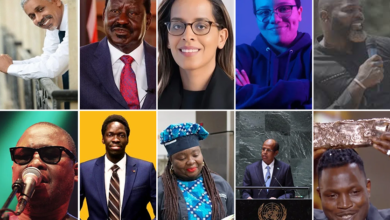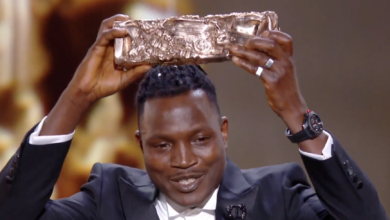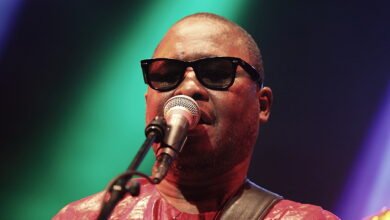Rwanda « Remember, Unite, and Renew »
In the wake of genocide, Rwanda united in reconciliation, attaining remarkable progress in becoming a more peaceful and prosperous nation. On the 28th anniversary of these tragic events, commemorated each year in April, ANA looks at Rwanda’s model of reconstruction, where commemoration rhymes with development.
By Dounia Ben Mohamed in Kigali
If development, visible, tangible, confirmed by credible indicators, is confirmed, accelerated, and impressive, one must be in the country, when the fateful month of April arrives, to remember that in 1994, not so long ago after all, Rwanda was struck by a terrible tragedy: the genocide against the Tutsis perpetrated by the extremist Hutu government, during which more than a million Tutsis were massacred in only one hundred days. A painful past that still haunts Rwandans, those who lived through it as well as those who were born after. A memory that is all the more difficult to bear because the events that led to the tragedy have not yet been fully clarified, despite the many investigations and research carried out over the years. Hence the pain, also tangible, in Kigali as elsewhere in one of the thousand hills that make up the country, when the month of April arrives.

For every year in April, and for one hundred days, Rwanda remembers. On the occasion of the 28th anniversary of the Rwandan genocide against the Tutsis, co-organized by the Commission of the African Union (AU) and the Permanent Mission of the Republic of Rwanda to the African Union, the theme chosen was « Remember, Unite and Renew ». A triptych that perfectly summarizes the model of reconstruction of Rwanda, where commemoration rhymes with development.
« Rwanda has made spectacular progress in terms of development since the genocide of 1994 »
Indeed, in the aftermath of the genocide, Rwanda has rebuilt itself by working on both sides: reconstruction, which has resulted in reconciliation and thus renewed unity; and development, making remarkable progress towards becoming a more peaceful and prosperous nation.
In fact, Rwanda’s GDP has grown by more than 8% per year since 2001. « Rwanda has made spectacular progress in terms of development since the genocide of 1994, » says the World Bank in its latest annual report on the country. With, says the institution, « the improvement of the education system, the development of health and a very high gender parity (in the Rwandan parliament, 64% of deputies are women). » Rwanda thus, and this is sufficiently rare on the continent to emphasize, has achieved most of the Millennium Development Goals, as of the end of 2015, with notably 70% literacy, a rate among the highest on the continent. Thanks to a focus on education and health, 90% of the population is now covered by social security. The authorities have also reduced the poverty rate, which is now around 30%. At the same time, they have implemented drastic reforms to improve the business climate, with a zero-tolerance policy towards corruption, the implementation of control tools, and a culture of evaluation, which can be found at the highest levels of the State, through performance contracts, and which have made the reputation of the Rwandan model. This model is part of the Rwanda 2020 Vision, followed by the Rwanda 2050 Vision, which aims to turn this small landlocked East African country into a middle-income country by focusing on services… and technology.
A technological and financial hub
An ambition for which Kigali wants to be the showcase. A capital that wants to be a digital hub. With the installation of 500 km of fiber optics, the adoption of wifi in 2013, the digitization of government services, and the promotion of the digital economy through, among other things, the creation of Kigali Innovation City (read KIC, a pan African innovation hub). Kigali, inspired by models such as Singapore, wants to be the regional digital hub… and also financial with the creation of thethe Kigali International Financial Centre (KIFC), a project driven by Rwanda Finance to transform Kigali into a major financial hub capable of attracting foreign investment and encouraging the creation of highly skilled jobs in the finance sector (Read Interview Nick Barigye CEO Rwanda Finance Ltd “There are opportunities. The missing link is availability of capital finance to monetize those opportunities”). As a member of the Community of East African States (EAC), Kigali aims to be the gateway to investors in East Africa…and in Africa!
A country that attracts and inspires, on the continent as elsewhere. Investors and entrepreneurs are flocking to Kigali, the Mecca of business in Africa. « A country that gives us hope, the hope that it is possible, when you are a small African country, without oil, after having experienced the worst, to embody the best in Africa today. This analysis of an Ivorian entrepreneur now based in Kigali reflects the general idea.

If the Rwandans, resolutely turned towards the future, do not evoke, or hardly, the genocide, its memory is everywhere. In the energy that a whole people puts into getting out of it by itself. A legacy of the genocide that has become a defining feature of Rwandan culture. It’s true that we could have done without it, » confides a Franco-Rwandan consultant now living in Kigali, « but the genocide has meant that almost everyone in the city has lived in exile at one time or another. When we returned, we developed a form of self-sufficiency culture. First of all, economically, so as not to be dependent on imports, but not only. Every Rwandan today will do everything to get by, earn a living, and live. Even the students. They don’t wait to finish their studies to start a business project. It has become something very ingrained in our culture. And to emphasize: « Something that is also made possible by the leadership of this country. Which has a clear vision and makes sure it is followed on the ground. »
« Every year that passes makes us stronger and better »

A leadership embodied by Paul Kagame. “There are no more important people anywhere than we are, that have more important lives than ours, said President Kagame in 28th Commemoration of Genocide Against the Tutsi at Kigali, 7 April 2022. Much as our lives were destroyed, were wasted, as this testimony given by the young man there tells us. In the last 28 years, every year that passes makes us stronger and better people. And for being who we want to be, we shall be the ones to decide, not anybody deciding for us what and how to be.”






